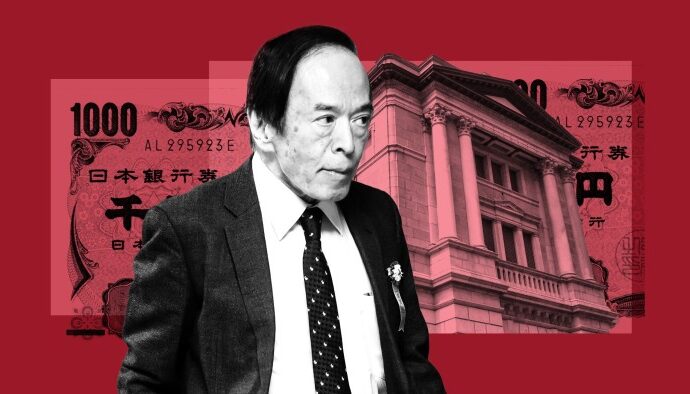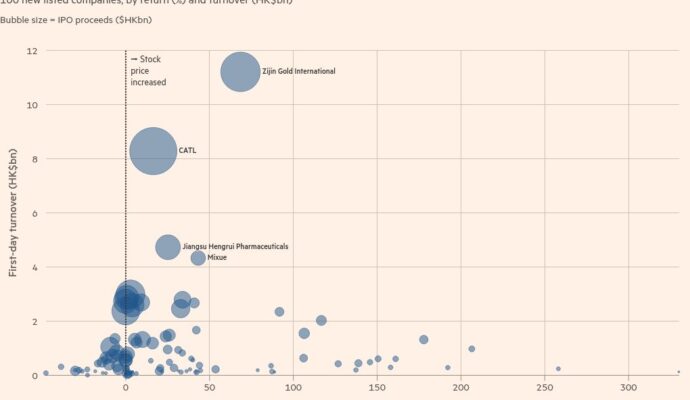Unlock the Editor’s Digest for free
Roula Khalaf, Editor of the FT, selects her favourite stories in this weekly newsletter.
One of the best-known billionaires to emerge from China’s tech sector is hoping to tap into the country’s passion for basketball by backing a pan-Asian college league styled on the US “March Madness” knockout tournament.
Alibaba chair Joe Tsai — who owns the Brooklyn Nets, the US professional National Basketball Association team — hopes to build on enthusiasm for live events in China with a new amateur competition.
The Asian University Basketball League launched this week with a tournament in Alibaba’s hometown of Hangzhou, featuring 12 college teams from mainland China, Korea, Japan, Taiwan, Mongolia and Hong Kong, including Peking University and the University of Hong Kong.
The league, which is also supported by former Chinese NBA star Yao Ming and counts Tsai’s Blue Pool Capital, an Alibaba fund and VC firm Gobi Partners among its investors, is the latest attempt to capitalise on the popularity of the sport in the region, where participation and viewership is high.
“We identified college basketball as a big untapped opportunity,” said Jintian Li, chief executive of Realeague, which runs the new league. The sport has been a “big part of school culture” in Asia for the past three decades, he added. “So many universities all have basketball programmes.”
Basketball has cemented itself as a hugely popular sport in mainland China in recent decades, helped by Yao’s breakout success in the early 2000s.
In the US, college basketball often draws viewership numbers north of 10mn per game. Previously, student athletes were not allowed to be compensated, but in June, a legal settlement paved the way for institutions to pay them directly for the first time. Since 2021, players have also been permitted to profit from sponsorships and endorsements based on their “name, image and likeness”.
The Asian University Basketball League, operating at a far smaller scale, is streaming on domestic platforms such as Youku and Tencent, and aims to draw on a vast sports viewership that also enjoys snooker and Formula 1. It is being run in tandem with the Asian University Sports Federation.
After this week’s initial tournament, the AUBL plans to revert to a league format with play-offs that echo the annual “March Madness” that caps the US college basketball season, and may in future expand to include different teams.
The scene in the 3,000-seat stadium in Hangzhou closely emulated American college and high school sport, with cheerleaders throwing gifts into the crowd during breaks and audacious attempts at long-distance shots in the game’s dying seconds.
“This is a history-defining moment,” said US NBA star Steph Curry in a recorded video that was shown. Sponsors include sports clothing company Under Armour, which held a “Curry camp” event in Chongqing this week attended by Curry, and Chinese electric vehicle company Zeekr.
The NBA is set to return to greater China for the first time in five years, with two matches in Macau in October. The Brooklyn Nets, which this month added Fanbo Zeng of the Beijing Ducks to their training camp, will feature.
Tsai, who co-founded Alibaba with Jack Ma, has also invested in other sports, including American football’s Miami Dolphins and Los Angeles FC, and played lacrosse in college in the US.
While China has its own professional league, the Chinese Basketball Association, the sport has also seen a rise in live amateur events, including a local intercity basketball league in Zhejiang, where winning teams are awarded bags of live fish.
Shao Pengyu, a 24-year-old player for Zhejiang University competing in this week’s tournament, said that Chinese basketball now was “more likely to develop from campus basketball”.
Additional reporting by Benjamin Wilhelm in New York

